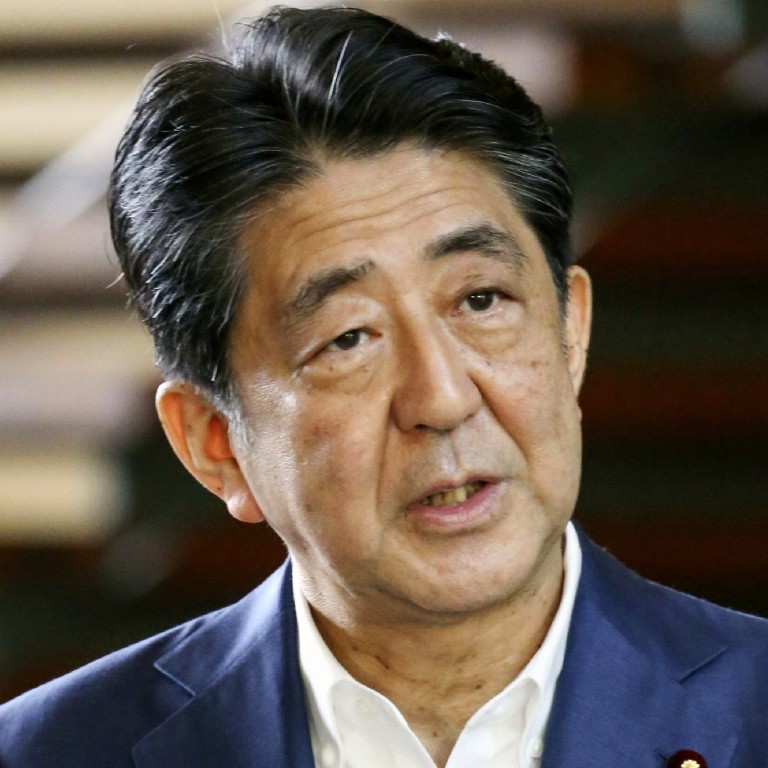
Military attack on Taiwan would be ‘suicidal’ for Beijing, former Japanese PM Shinzo Abe warns
- He says Beijing must be urged not to pursue territorial expansion and calls threat to Taiwan and its democracy ‘a dire challenge to all of us’
- Abe also tells security forum that Taiwan, Japan and the US must work together and ‘build our capabilities in all domains’
Abe – who remains influential in the ruling Liberal Democratic Party in Japan – made the comments in a video address to the Taiwan-US-Japan Trilateral Indo-Pacific Security Dialogue in Taipei on Tuesday.
“An adventure in military affairs, if pursued by such a huge economy like China’s, could be suicidal to say the least,” Abe said.
“We must urge them not to pursue territorial expansion and restrain from provoking, often bullying, their neighbours because it would harm their own interests.”
Abe said there was a threat to Taiwan and its democracy, which was “a dire challenge to all of us, especially to Japan”.
He said Japan, the US and Taiwan should spare no effort in “building our capabilities in all domains – from the undersea, sea surface, air space to the cyber and outer space” to counter security threats in the region. “Lest we forget, weakness invites provocations,” he said.
Abe elaborated on this on a Japanese television programme that aired on Monday, saying an attack on a US military vessel in any contingency concerning Taiwan could be a situation that would allow Japan to exercise the right of collective self-defence, according to Kyodo.
He noted that Yonaguni Island – Japan’s westernmost territory – was only 110km (68 miles) away from Taiwan. “If something happens here, it will definitely become a crucial situation” affecting Japan’s peace and security as set out in its security legislation, he was quoted as saying by Kyodo.
“Jointly, Australia and Japan brought TPP [the trade pact’s predecessor] into place. It is a group of economies that hold the rules-based order very much dear,” he said. “That is why the UK does qualify as a member, and so does Taiwan without doubt.”

